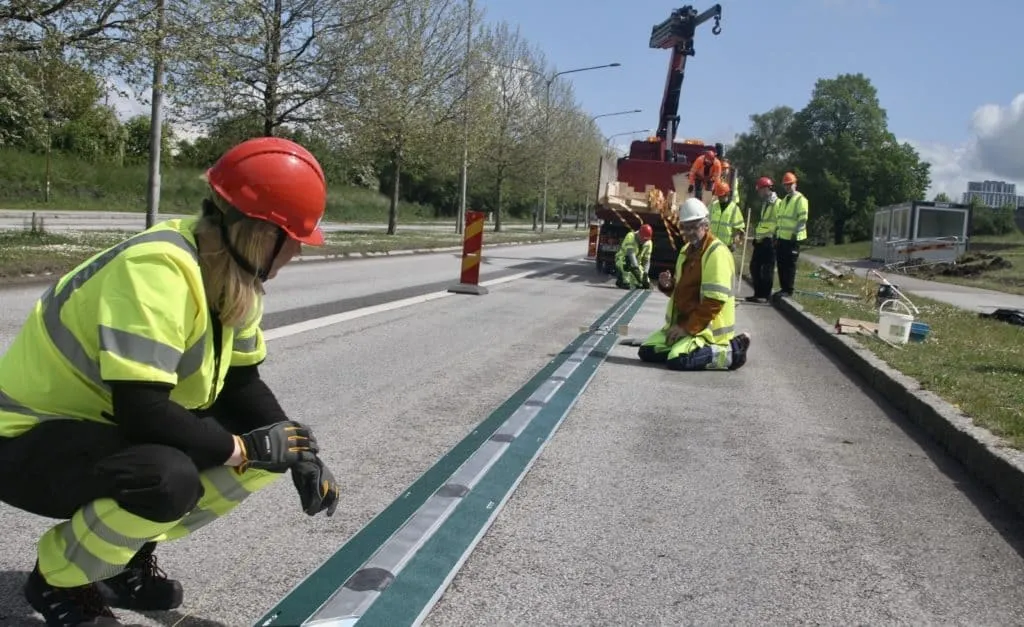
Evolution Road, a Swedish public-private group, is to set up a second phase of its electric road installation in the town of Lund.
It was commissioned by Trafikverket - the Swedish Transport Administration and the project’s main financial backer.
The consortium says that it is designing and will start installing a flatter version of its “successful” initial electric rail that has been laid down in the middle of a road lane.
The first test vehicle, an electric bus from Solaris, has been running journeys since last June.
According to Sweden’s climate goals, emissions from greenhouse gases from transportation are to be cut by 70% by 2030. It is anticipated that to reach this goal there will need to be large-scale conversion to electric vehicles in some form.
The current system consists of a conductive rail attached to the surface of the road. The newer system will be recessed into the asphalt to create a seamless road surface making the system especially suitable for roads with higher vehicle speeds.
A conductive pick-up under the vehicle connects to the electric rail via sliding contacts. The rail is electrified when covered by the vehicle, making it safe to use in an urban environment.
The version installed on top of the road is 4cm high and 35cm wide, with inclined sides of only 10° to make it smooth when changing lanes. The rail is electrified by roadside power units that deliver up to 300kW with 97% efficiency while driving, according to the project details.
The project has set up a demonstration site in Lund to explore the potential of the wider use of electric road systems as one part of a larger future fossil-free transportation network.
The project is a collaboration between nine partners: Elonroad, Innovation Skåne, Kraftringen Energi, Lund Municipality, Faculty of Engineering at Lund University, Ramboll, Skånetrafiken, Solaris Sverige and VTI, the Swedish National Road and Transport Research Institute.
The rails were developed by Elonroad, based in Lund, and Hydro, a global integrated aluminium producer headquartered in Oslo, Norway.
The Evolution Road project started in 2019 and continues until 2022.









